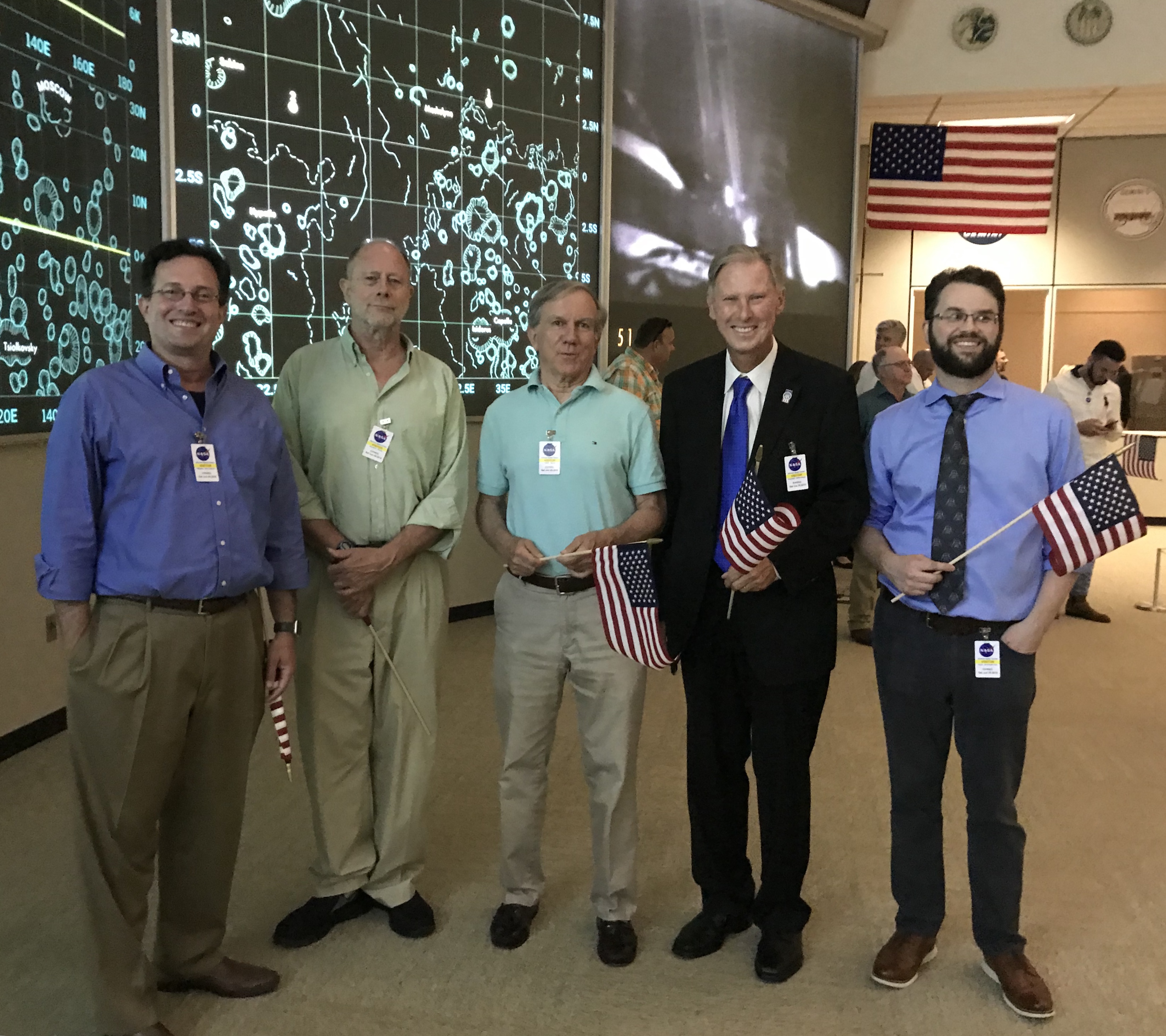HOUSTON, TX — Advisory Council on Historic Preservation Chairman Milford Wayne Donaldson FAIA, Executive Director John Fowler, and several staff members attended the ribbon-cutting and grand opening ceremony for the newly restored Apollo Mission Control Center (MCC) at NASA Johnson Space Center in Houston, Texas, June 28.
The ACHP assisted with the funding of the project by managing the $4 million raised by Space Center Houston and the City of Webster, Texas. NASA cannot accept public donations that have a targeted purpose, but the ACHP has authority to do so.
“The Mission Control Center restoration project is the first time the Advisory Council on Historic Preservation has used the special authority granted to it by the National Historic Preservation Act that enables it to accept private donations and transfer them to other federal agencies for preservation purposes,” said Chairman Donaldson, speaking at the ribbon-cutting ceremony. “It is not surprising that NASA, an agency known for achieving the new and exceptional, is paving the way for other agencies to do what they have done–preserve an incredible piece of our nation’s and the world’s history through a unique public-private partnership.”
The MCC is where NASA’s flight control team planned, trained, and executed Gemini, Apollo, Apollo/Soyuz, Skylab, and Space Shuttle missions until 1992, including the momentous Apollo 11–the moon landing. Unfortunately, by 2015, the MCC was deteriorating and assigned threatened status by the National Park Service.
The project restored the historic MCC to its late-1960s state down to the last detail–the carpet, wallpaper, and ceiling tiles were replicated; the modules in the refurbished original consoles were configured to harken back to Apollo. Even original chairs, ash trays, bookcases, and trash cans were either obtained or reproduced. The Visitor Viewing Room, Simulator Control Room, Bat Cave, and Recovery Operations Control Room also were restored.
The restoration of the National Historic Landmark MCC was a joint venture of Johnson Space Center, Space Center Houston, the City of Webster, and the Manned Spaceflight Operations Association
The MCC restoration project exemplifies the benefits of a federal agency developing and fostering partnerships with non-profit organizations for the preservation and treatment of historic properties as well as the utilization of the ACHP’s donation authority for federal preservation initiatives. The project also highlights the importance of consulting party involvement in the Section 106 process. Through the engagement of the State Historic Preservation Officer, the National Park Service, Space Center Houston, and former NASA flight controllers Eugene Kranz and Edward Fendell, NASA was able to develop, consult on, and implement a preservation project that will allow the Apollo MCC to be enjoyed for generations to come.
The ACHP has worked closely with NASA on its historic preservation efforts since the National Park Service’s 1984 Man in Space National Historic Landmark Theme Study. Highlights of this relationship include the following:
- The 1989 Programmatic Agreement (PA) with the ACHP and the National Conference of State Historic Preservation Officers for management of NASA’s 20 National Historic Landmarks;
- In 1990, NASA and the ACHP worked closely on the ACHP’s congressionally mandated report Balancing Historic Preservation Needs with the Operation of Highly Technical or Scientific Facilities;
- The ACHP developed center-specific PAs for identification and management of historic properties;
- The ACHP developed a Memorandum of Agreement in 2011 among NASA, the ACHP, the National Park Service, and the four State Historic Preservation Officers representing states where NASA’s major shuttle-related centers are located, setting out the steps to preserve and document the Space Shuttle orbiters Atlantis, Endeavour, and Discovery prior to their permanent museum display;
- The ACHP participated in NASA Environmental Conferences at which ACHP staff has provided customized training to NASA staff on specific topics related to Section 106, including Successfully Involving the Public and Program-Specific PAs.
